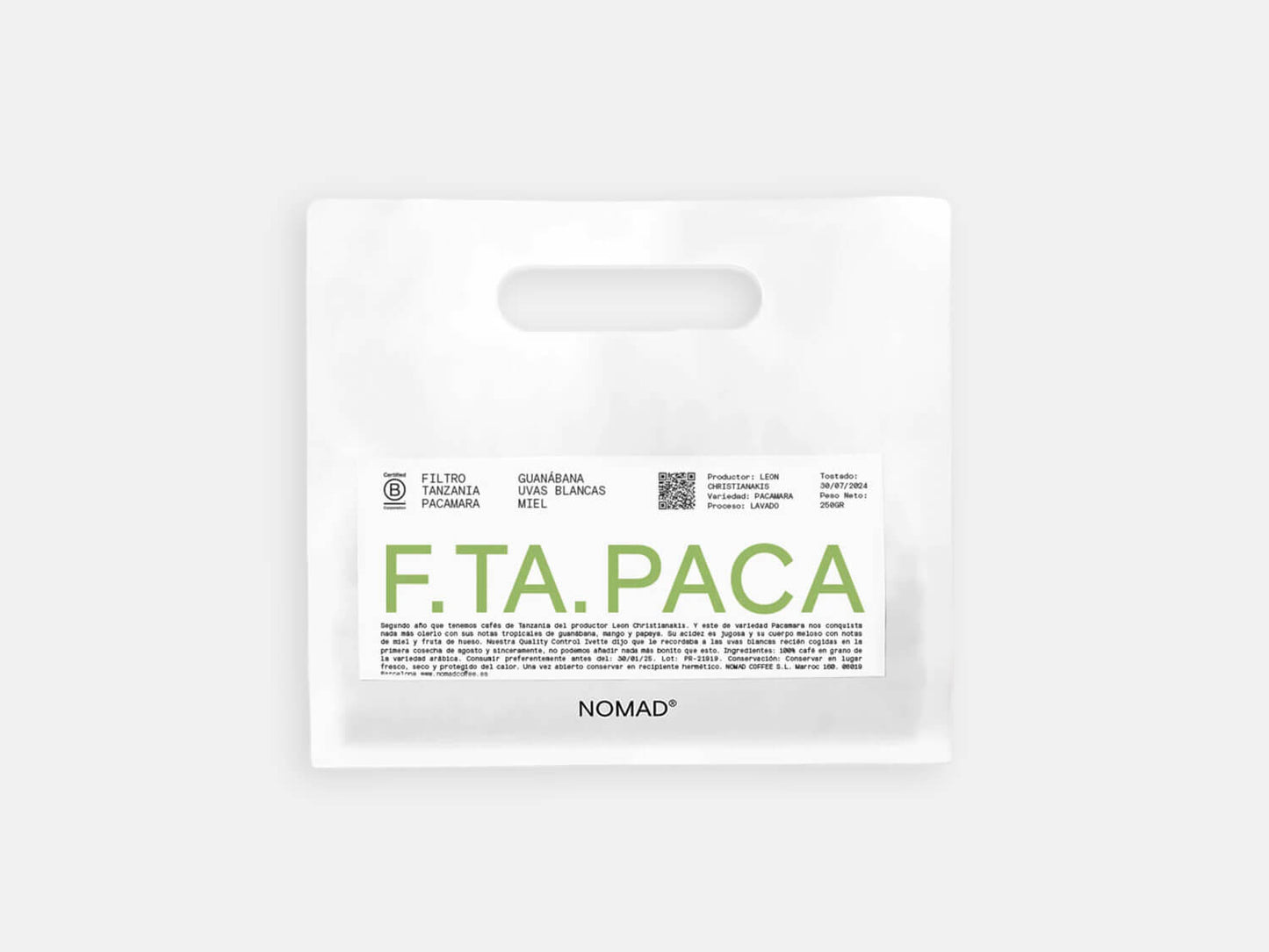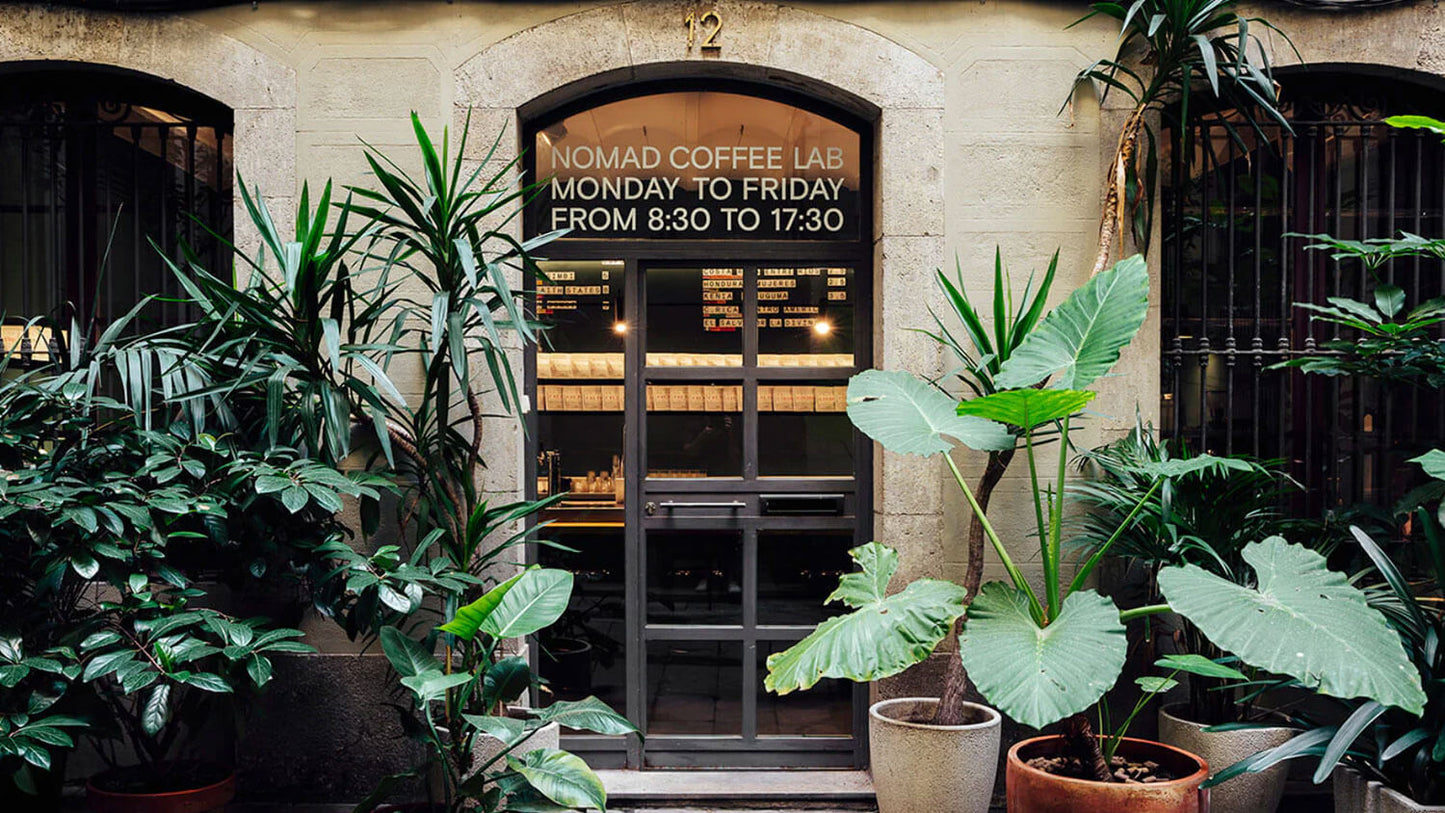NOMAD
NOMAD Acacia Hills Pacamara - Tanzania Filter 250g
NOMAD Acacia Hills Pacamara - Tanzania Filter 250g
Usually delivered in 1-2 days
Verfügbarkeit für Abholungen konnte nicht geladen werden
CATEGORY: Special Filter
VARIETY: Pacamara
ALTITUDE: 1750 - 1950 MASL
PROCESS: Washed
HARVEST: November 2023
NOTES: Soursop, White grapes, Honey
TASTING NOTE:
This is the second year that we have coffees from Tanzania from producer Leon Christianakis. And this Pacamara variety conquers us as soon as we smell it with its tropical notes of soursop, mango and papaya. Its acidity is juicy and its body is mellow with notes of honey and stone fruit. Our Quality Control Ivette said it reminded her of the white grapes just picked in the first harvest in August and honestly, we can't add anything more beautiful than that.
HISTORY:
The views from Acacia Hills Estate are beautiful. The northern boundary of the estate is along the southwest side of Mount Oldeani, whose slopes drain water into Lake Eyasi, a key salt lake on the edge of the Ngorongoro Conservation Area and Serengeti National Park. From the edge of the farm, you can see the rim of the Ngorongoro Crater, an ancient collapsed volcano whose fertile valley is now home to dozens of different animal species: from African elephants to lions, rhinos, leopards and giraffes.
The land where the farm is located was formerly four smaller farms, first cultivated by German settlers in the 1930s and 1940s. In the 1960s, the four farms were united as Acacia Hills Farm and the farm has been producing coffee ever since: a total of more than 50 years.
In 2007, Leon Christianakis, a local Tanzanian coffee farmer, partnered with Mark Stell, founder of Portland Coffee Roasters, to purchase and improve the farm with the goal of focusing on specialty coffee production. Today, Leon incorporates a wide variety of practices, including soil testing, managed shade and processing methods, into his production to ensure the highest possible quality.
The farm also has its own cupping laboratory that allows Leon to analyze its coffees on site.
Process
The cherry sorting process begins in the field and continues at the Washed station, where the cherries are pulped. The coffee then undergoes an open fermentation process for a period of 12 to 13 hours. During this time, the coffee is checked regularly to control the level of fermentation. Once the fermentation process is complete, the coffee is washed and sorted to separate P1, P2 and floats.
The drying process, which usually takes 13 to 16 days depending on weather conditions, continues until the parchment reaches a moisture content of 12% in the beds. The dried parchment is then transferred to a dry storage area.
RECIPE:
When replicating the recipe, there are different variables that can interfere in the final result of your cup, such as roasting date, conservation of the beans, environment, water, etc. It is important to keep in mind that all these factors may influence and you may have to make small adjustments when replicating this recipe.
Method: V60
Mill: Fellow Opus to number 8
Recommended mineral water: Bezoya
We used 16.5 grams of coffee per 240 grams of water at a temperature of 96º.
Add the water in 2 pours. First pour 60 ml, wait 30 seconds and then pour the rest of the water until we reach 240 ml. The total infusion time should be 2:25 minutes, obtaining with this recipe a TDS of 1.26% and an extraction percentage of 18.86%.
Share




